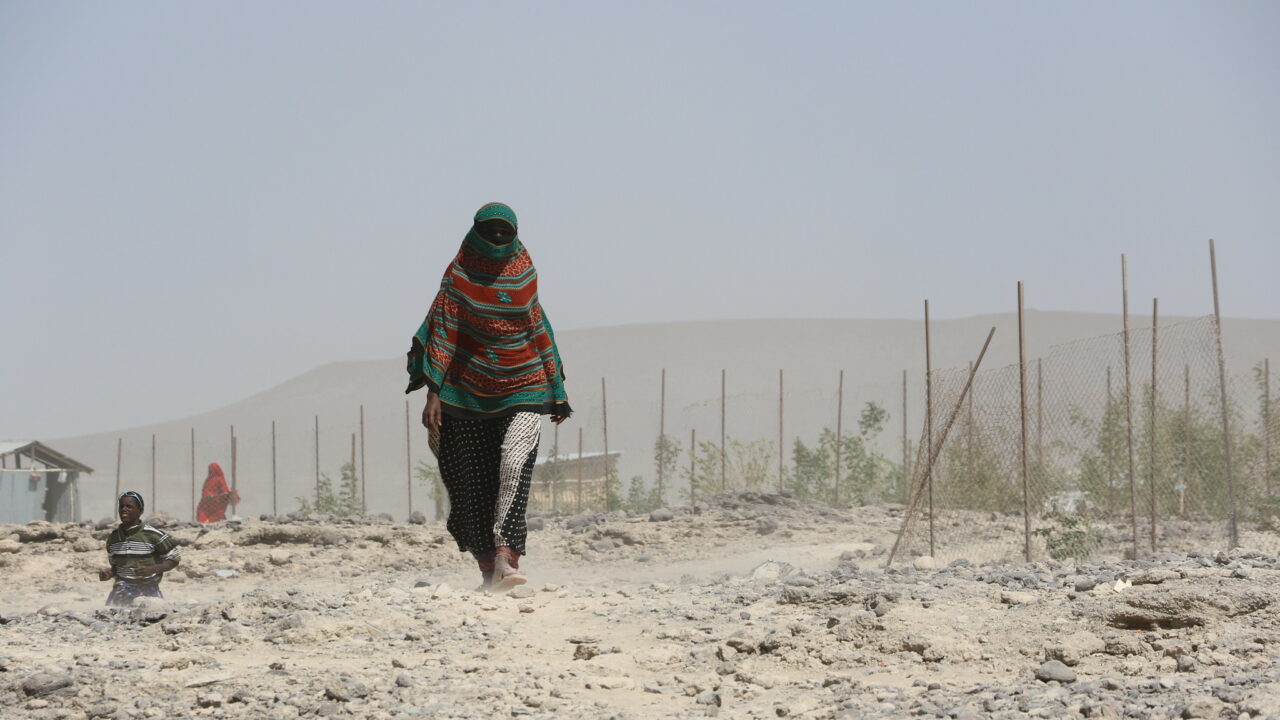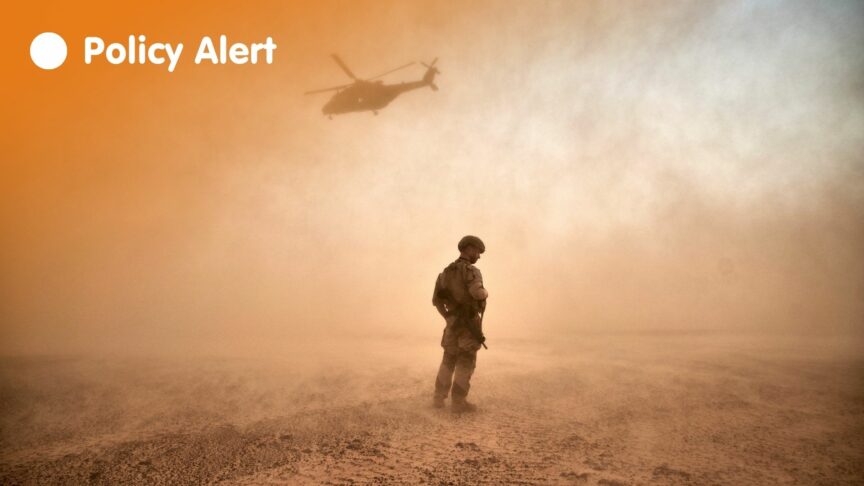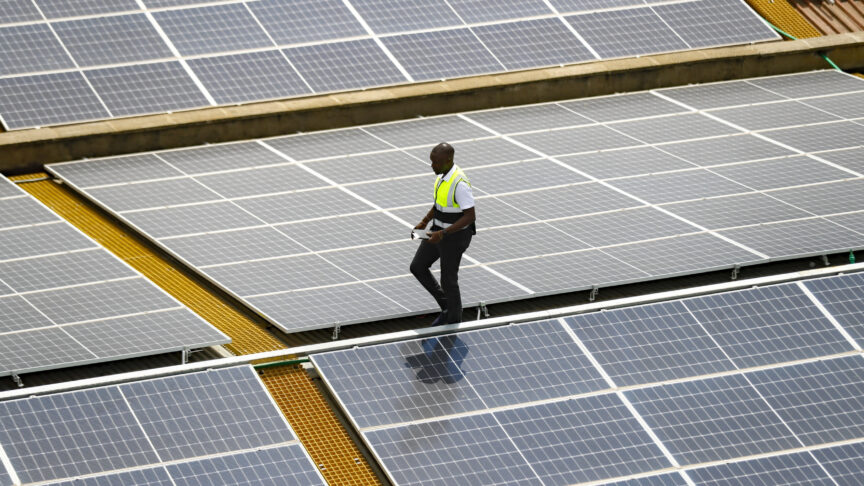How Europe can stop Ethiopia’s slide into a regional war
The recent war in Ethiopia may at first glance appear to be a short, sharp internal conflict with few implications for the Horn of Africa – or for Europe. But the war is far from over, and the risks it creates are spreading
The war with Tigray marks the explosion of simmering tensions between Ethiopia’s former dominant party, the Tigray People’s Liberation Front (TPLF), and Prime Minister Abiy Ahmed. In 2019 the prime minister replaced the ruling Ethiopian People’s Revolutionary Democratic Front with the Prosperity Party, prompting the TPLF to withdraw from the coalition rather than dissolve to join the new government. The slide into conflict began in August that year, when Abiy Ahmed delayed a national election scheduled for May 2020, citing concerns about covid-19. In response, the TPLF questioned Abiy Ahmed’s legitimacy and proceeded with a regional election in Tigray in September. The prime minister froze federal funds to Tigray the following month, and the TPLF attacked the Ethiopian army’s Northern Command soon after.
Abiy Ahmed launched a military campaign in Tigray on 4 November. He announced after three weeks that the campaign, which he called a “law enforcement” operation, had concluded with the capture of Tigray’s regional capital, Mekelle. For its part, the TPLF described its withdrawal as a tactical retreat, vowing to continue the fight as an insurgency.
Abiy Ahmed’s declaration of victory is premature. By making the removal of the TPLF from Mekelle his main objective, he has set in motion a far broader process of destabilisation. Three dynamics account for this.
Europe is currently the only actor that can bring the international community together on the conflict in Ethiopia
Firstly, the conflict has heightened ethnic tensions, leaving Tigrayans feeling threatened by their neighbours and alienated from the federal government – a sentiment that is sure to play to the insurgency. Secondly, the war is colouring public perceptions of the goal of Abiy Ahmed’s national political project, creating the sense that it may be about centralising power – and doing so to the benefit of the Amhara ethnic group rather than genuine reform. Thirdly, the TPLF’s insurgency strategy has a strong Eritrean element, the pursuit of which will further regionalise the conflict.
Ethnic warfare
The Ethiopian army was not alone in waging war against the TPLF. Tigray’s neighbouring state, Amhara, joined the military campaign by deploying a mix of regular forces and ethnic militias. The Amhara want to settle a score with the TPLF. When the TPLF took power in 1991, this marked a departure from long-standing Amhara dominance of Ethiopia. And more recent territorial claims in western and southern Tigray have created a strong incentive for the Amhara to intervene. As the military campaign gathered pace, ethnic-based mobilisation grew with a series of tit-for-tat attacks on civilians involving both Tigrayan and Amhara militias (although the details of these incidents remain murky due to a government blackout).
When the TPLF retreated, the Amhara drew in to occupy the contested territories in western and southern Tigray: Wolqayt, Tsegede, Tselemt, and Raya. This newfound influence was cemented by Amhara appointing administrators to these disputed territories.
The result is that Amhara state has all but absorbed nearly one-third of Tigray. Abiy Ahmed’s objective may have been to eliminate the TPLF and then win over the Tigrayan people, but the manner in which he has conducted the war seems guaranteed to alienate them.
National implications
The rest of Ethiopia is watching the war carefully for its wider implications. The chief concern in this is the kind of solution the prime minister advocates to the perennial Ethiopian national problem: the relationship between the central government and regional autonomy. With an eye on other regions, the TPLF has presented itself as a champion of maximum regional autonomy in the face of Abiy Ahmed’s centralising ambitions. The TPLF has implied that he aims to establish a dictatorship, as part of a resistance strategy designed to fan the flames of apprehension in Ethiopia’s other regions.
The Amhara’s historical dominance of Ethiopia, Amhara state’s partial absorption of Tigray, and Abiy Ahmed’s promotion of Amhara figures in the federal government during the war all worry Ethiopians in other federal regions. Seen in this way, the initial target may have been Tigray, but the end goal could be a resurgent Amhara-dominated government on course to centralise power. Recent statements from the Amhara regional government – such as one that threatened to intervene in Benishangul-Gumuz region in response to attacks on ethnic Amharas – only exacerbate other regions’ fears that they could suffer the same fate as Tigray.
The internationalisation of the conflict
The United States has all but confirmed that the Eritrean Army joined the military campaign on the side of the Ethiopian government. Though Ethiopia and Eritrea deny this, Eritrea’s involvement has internationalised the conflict. The Eritrean president, Isaias Afwerki, has long seen the TPLF as a thorn in his side. He saw in the war the chance to decapitate the TPLF while leaving Abiy Ahmed to deal with the messy knock-on effects of the conflict for Ethiopia. But the TPLF’s strategy for survival involves expansion into Eritrea. This will drag Afwerki into a conflict that he hoped to wage from a safe distance. Nonetheless, it is unclear whether the TPLF will be able to sustain its insurgency in the long term.
In any case, the TPLF will find it difficult to win even a modicum of international support, given the Ethiopian government’s standing. Ethiopia has long been the linchpin of regional peace and security, and in Abiy Ahmed has a Nobel laureate at its helm. Criticism of his conduct of the war may eventually benefit the TPLF, but it will take time for this to translate into diplomatic capital for the TPLF.
The TPLF has its back to the wall – lacking access to the sea, friendly neighbours to retreat to, and a means to push back the campaign by the Ethiopian army and the Amhara. It is important to note that, in this difficult situation, the TPLF will look to expand into Eritrea, which could help it access supply lines that run through the Red Sea but would further internationalise the conflict. The TPLF could do so by using the common ethnic, cultural, and religious bond between Tigrayans in Ethiopia and Eritrea. Indeed, the TPLF has the support of many Eritrean Tigrayans, having long welcomed refugees who fled into Tigray to escape Afwerki’s regime.
While the TPLF’s immediate objective is survival, a move into Eritrea would fit with one of its core beliefs: that uniting ethnic Tigrayans across Ethiopia and Eritrea is, in the long run, necessary to protect them against aggression from other large Ethiopian ethnic groups, such as the Amhara. Afwerki fears that the TPLF will play on Eritrean popular discontent in the hopes of breathing life into an Eritrean insurgency against his government.
The TPLF could limit international resistance to its insurgency by emphasising that it is fighting Afwerki, who – among Western policymakers – has a reputation for repressive rule and the destabilisation of the region. States with long-standing antipathy towards Afwerki may be tempted to sympathise with the TPLF and its aims.
Europe’s role
European countries’ diplomatic response to the crisis should focus on the destructive relationship between Eritrea’s participation in the war and the TPLF’s survival strategy.
Despite Abiy Ahmed’s vociferous opposition to international demands on the conduct of the conflict and its resolution, the EU and its member states have prioritised the protection of civilians and humanitarian access – including access to the Tigray region.
Although European governments are considering whether to cut some of their aid to Ethiopia in response to these alleged crimes, their position on the political solution is less forceful. They are deferring to African leaders on the issue. But, given that the African Union will struggle to confront a member state as influential as Ethiopia, this deference is unlikely to help Europeans achieve their aims.
Europe is currently the only actor that can bring the international community together on the conflict in Ethiopia. The US, which will make this issue a priority under the Biden administration, remains in an interregnum. And powerful actors in the Gulf tend to focus on bilateral diplomacy rather than multilateral forums. Accordingly, the AU and well-intentioned states on the Horn of Africa will need Europe’s political support if they are to help resolve the conflict.
European leaders could begin to help by gathering the currently disparate international players in the region, with a view to fashioning a core group that can achieve progress towards a political solution. Europeans can help avert further conflict in Ethiopia – but they need to act now.
The European Council on Foreign Relations does not take collective positions. ECFR publications only represent the views of their individual authors.



